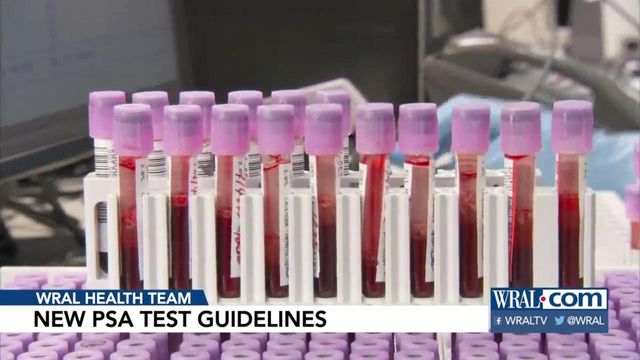New guidelines recommend men make personal decision about prostate screening
New guidelines released Tuesday morning provide refreshed guidance for prostate screenings.
Posted — UpdatedNew guidelines released Tuesday morning provide refreshed guidance for prostate screenings.
The tests look at PSA, which stands for prostate specific antigen—a protein produced by cells of the prostate gland. A normal PSA level is typically 4 or less, but there is no specific normal or abnormal level.
The absolute number or how quickly the number rises from one year to another helps doctors to determine if a prostate biopsy is indicated.
Until now, many professional organizations have recommended screening for men of average risk beginning at age 50. For others at higher risk, such as African Americans and those with a close family history of prostate cancer, the recommendation has been earlier, at age 40 or 45.
Now, though, the Preventive Services Task Force issued a draft recommendation statement weighing the potential benefits against the potential harm of PSA-based screening.
They recommend "informed, individualized decision-making based on a man's values and preferences" for men between the ages of 55 and 69. The task force says screening is not recommended for men 70 and older.
These recommendations only apply to adult men who have not previously been diagnosed with prostate cancer and have no signs or symptoms of the disease.
The effect of the new guidelines is yet to be seen, and, ultimately, it is a decision between the physician and patient.
The PSA blood test can show elevated numbers for reasons other than prostate cancer, such as an enlarged or inflamed prostate or an infection. There are also some risks to prostate biopsies, such as bleeding or infection. The infection risk is about 6 to 8 percent, and patients are given antibiotics before and after the procedure.
PSA-based screen and biopsies cannot tell for sure which cancers are likely to be aggressive and spread or to grow so slowly as to never cause symptoms.
Some people receive surgery and radiation and do not benefit. There can also be complications like sexual impotence and urinary incontinence.
For high-risk patients, doctors will continue to recommend early screening starting at about age 40.
There are more African American men in North Carolina dying of prostate cancer than any other state in the country.
Men should continue to have conversations with their doctors about what is best for them in their individual situation.
• Credits
Copyright 2024 by Capitol Broadcasting Company. All rights reserved. This material may not be published, broadcast, rewritten or redistributed.





